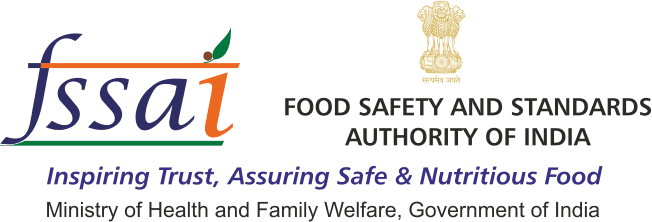
The Food Safety and Standards Authority of India (hereinafter referred to as the FSSAI), is a body that has been established by virtue of Section 4 of the Food Safety and Standards Act (hereinafter referred to as the Act). Creation of the FSSAI has been mentioned as one of the primary objectives of the Act, as is evident from its preamble. The FSSAI performs diverse function, however, one of the main duties that it discharges is that of issuing and regulating the food licenses of Food Business Operators (hereinafter referred to as the FBOs). The food license application form needs to be filled in and submitted online at the website of the FSSAI.
Any business entity that seeks to operate in the field of business necessarily needs to obtain a food license, lest their entity suffer uninvited consequences. This blog provides in some detail the procedure that an FBO needs to apply in order to apply for a food license.
The Food Safety and Standard (Licensing and Registration of Food Businesses), Regulations 2011, is the pre-dominant legislation which provides for the secondary rules and regulations pertaining to food licenses.
All FBOs, however, small they might be, and regardless of whether they are engaged in manufacturing, storing, labelling, distributing or selling, needs a license. However, smaller FBOs (entities whose annual turn-over is less than INR 12 lakhs), need not apply for a license, in that a mere registration is sufficient for them, provided they are not wholly Export Oriented Units (EOU) and are active in only one particular state. All other residuary entities (which do not fall under the above-mentioned category) mandatorily need to apply for a license, which may either be a State License or a Central License (depending on various other factors like existence in more than one state, annual turn-over, product manufactured or processed etc.).
Resultantly, an entity will first have to check its eligibility- whether it qualifies for a mere registration, or does it need to apply for a license. Verification of the eligibility can be done on the by clicking on the link.
For this purpose, FSSAI has created a user-friendly online portal called Food License Registration System (hereinafter referred to as the FLRS). The laudatory qualities of this portal include that it is fast, cheap, and most importantly, conveniently accessible. The current FLRS is the third in its version.
Once, the eligibility has been ensured, the FBO must proceed to apply for the license on the FLRS. This step is initiated by filling up of Form B for a license and Form A for a mere registration. Submission of the form constitutes the first stage in the application procedure.
The FLRS is user-friendly in that immediately after the receipt of the application, the applicant shall receive an ID using which he or she can track the status of his/her application. The authority also has the right to ask for further information if it is dis-satisfied with the details that have already been provided by the applicant. It is important that the applicant furnish such additional information within 30 days.
The FSSAI, together with the FLRS, may take about a week to assess the application, post which, it will notify to the applicant whether his or her application has been accepted or rejected. If the body decides in favor of the applicant, that is, allows the application, it will further grant a certificate of registration. This certificate must be displayed by the applicant at a prominent place in his office during the business hours.
Once an FBO manages to secure a registration or a license, it needs to very mindful of its validity. Whereas a basic registration is valid for one year, a license, both central and state, is valid for five years.
If the license is about to get expired, the license holder must apply for a renewal at least a month prior to the scheduled date for expiration of the license. Any delay invites a (LSF) Late Submission Fee of Rs 100 for every day.
Once a license has been terminated, the FBO is not entitled to re-apply for registration or a license for at least the next 3 months from the date of the registration. Default under the Act can also lead to suspension or on proving of the allegation, even cancellation of the license.
Therefore, every FBO must make sure that it is operating its business within the legal bounds with a proper license. Since the FSSAI Act is a welfare legislation that has been enacted by the legislature in order to safeguard the health and nutritional interests of the population living over the territory of India. Resultantly, the regulatory authorities apply the regulations pertaining to the same very strictly and do not show any inclination towards relaxation of the norms.
